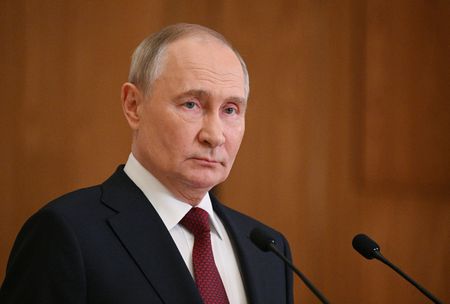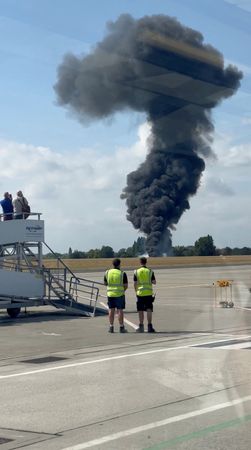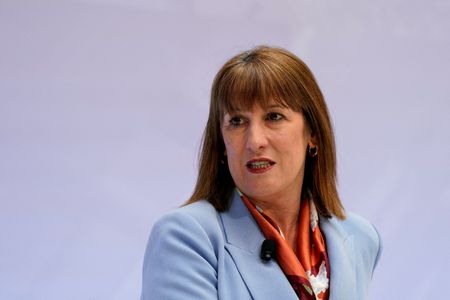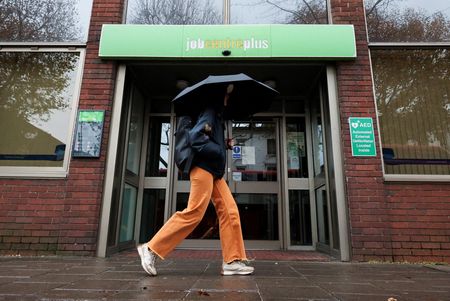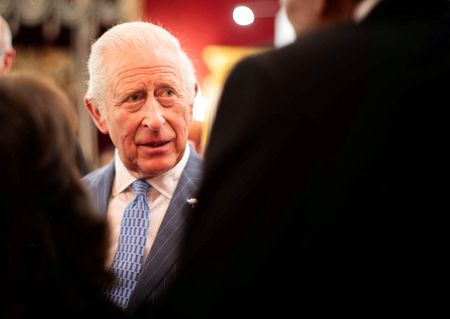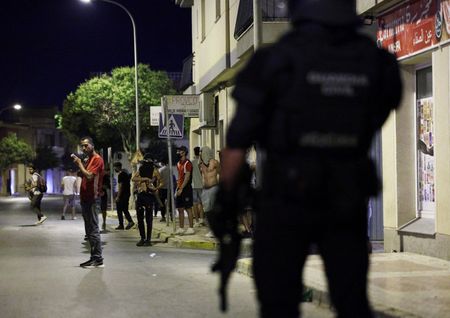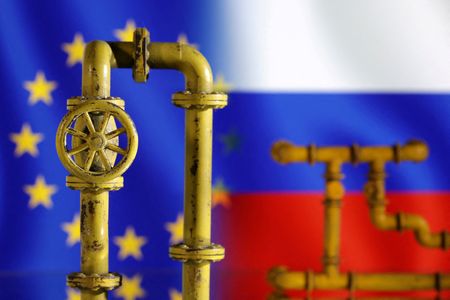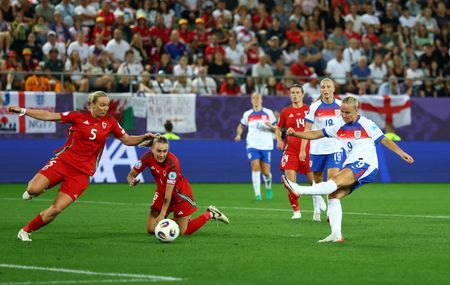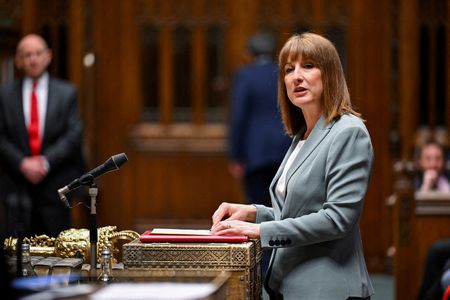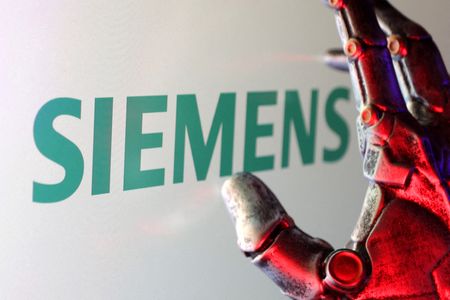By Dmitry Antonov and Andrew Osborn
MOSCOW (Reuters) – Russian President Vladimir Putin is ready to hold a phone call with U.S. President Donald Trump and Moscow is waiting for word from Washington that it is ready too, Kremlin spokesperson Dmitry Peskov said on Friday.
Trump said on Thursday he wanted to meet Putin as soon as possible to secure an end to the war with Ukraine and expressed his desire to work towards cutting nuclear arms, something the Kremlin said Putin had made clear he wanted too.
When asked if Putin and Trump would use this weekend to hold their first phone call since Trump’s inauguration – an essential precursor ahead of a face-to-face meeting for deeper talks – Peskov said:
“Putin is ready. We are waiting for signals (from Washington). Everyone is ready. It is difficult to read the coffee grounds here. As soon as there is something, if there is something, we will inform you.”
Trump, who on Thursday was addressing the World Economic Forum in Davos via video link, said he wanted to work towards cutting nuclear arms, adding that he thought Russia and China might support reducing their own weapons capabilities.
“We’d like to see denuclearization … and I will tell you President Putin really liked the idea of cutting way back on nuclear. And I think the rest of the world, we would have gotten them to follow, and China would have come along too,” Trump said.
Peskov said Putin had made it clear he wanted to resume nuclear disarmament negotiations as soon as possible, but said such talks would need to be wider than in the past to cover other countries’ nuclear arsenals, including those of France and Britain.
“So there is something to talk about, we need to talk. Time has been lost in many respects. We have spoken about such interest before, so the ball is in the court of the U.S., which has stopped all substantive contacts with our country,” said Peskov.
The New Strategic Arms Reduction Treaty, or New START, which caps the number of strategic nuclear warheads that the United States and Russia can deploy, and the deployment of land- and submarine-based missiles and bombers to deliver them, is due to run out on Feb. 5, 2026.
It is the last remaining pillar of nuclear arms control between the world’s two biggest nuclear powers.
OIL PRICES
Commenting on Trump’s Davos demand for OPEC and Saudi Arabia to lower the oil price and the idea that lower prices could speed the end of the Ukraine war, Peskov said:
“No. This conflict does not depend on oil prices. This conflict is happening because of the threat to the Russian Federation’s national security, because of the threat to Russians who live in well known territories, and because of the complete refusal of the Americans and Europeans to listen to Russia’s concerns. It has nothing to do with oil prices.”
By “well known territories”, Peskov meant parts of eastern Ukraine that Russia has captured since the start of the war and claimed as its own, in actions that most countries at the United Nations have condemned as illegal.
Peskov also took issue with Trump’s assertion that Ukrainian President Volodymyr Zelenskiy was ready to strike a peace deal, pointing out that Zelenskiy had, in a 2022 decree, ruled out any negotiations with Putin.
“In order to reach a settlement, it is necessary to hold negotiations. (But) Zelenskiy has banned himself from conducting in his own decree.”
Zelenskiy said this week that at least 200,000 European peacekeepers would be needed to prevent a new Russian attack on Ukraine after any ceasefire deal.
(Reporting by Dmitry Antonov in Moscow and Andrew Osborn in London; Additional reporting by Mark Trevelyan, Anastasia Teterevleva and Filipp Lebedev; Editing by Mark Trevelyan)

